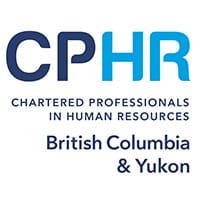Employers’ legal obligations to their employees are not limited to meeting workplace standards under the applicable labour or employment legislation. Legal proceedings on the basis of human rights violations in the workplace have grown to comprise a significant part of employment law today. Federally regulated employers in British Columbia must comply with the Canada Human Rights Act, while provincially regulated employers must follow the BC Human Rights Code. Both of these pieces of legislation prohibit discrimination in employment on certain protected grounds.
Federally regulated employers are prohibited from discriminating against their employees on the grounds of race, national or ethnic origin, colour, religion, age, sex, sexual orientation, gender identity or expression, marital status, family status, genetic characteristics, disability, or conviction for an offence for which a pardon has been granted or in respect of which a record suspension has been ordered.
In comparison, under the BC Human Rights Code, provincially-regulated employers may not discriminate on the grounds of race, colour, ancestry, place of origin, political belief, religion, marital status, family status, physical or mental disability, sex, sexual orientation, gender identity or expression, or age of that person or because that person has been convicted of a criminal or summary conviction offence that is unrelated to the employment or to the intended employment of that person.
Despite some key differences between the two pieces of legislation, the law is clear that employers cannot discriminate against employees in the workplace. Some examples of discrimination in the employment setting include refusing to consider immigrants for vacant positions, which constitutes discrimination on the grounds of place of origin, nationality or colour. Employers keeping female employees out of positions that are historically occupied by men, or finding fault with a woman’s work as soon as she becomes pregnant, may be discriminating against their employees on the basis of sex. Some employers may also be liable for discrimination on the basis of age if they expect older workers to be as fit as 20-year-old employees, even if their jobs are not physically demanding.
Any employer wanting to avoid errors in upholding their human rights obligations may find that having an experienced employment law lawyer in his or her corner can be a valuable asset. Legal counsel can provide nuanced advice on an employer’s human rights obligations, and advocate for a business if accusations lead to legal proceedings. Similarly, employees who believe they are victims of discrimination in the workplace can utilize the services of such a lawyer to better understand and protect their legal rights.


